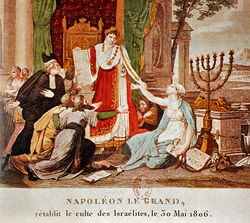Difference between revisions of "Category:Women's Studies--1800s"
(Created page with "{| style="margin-top:10px; background:none;" | style="background:white; width:65%; border:1px solid #a7d7f9; vertical-align:top; color:#000; padding: 5px 10px 10px 8px; -moz-b...") |
|||
| (3 intermediate revisions by the same user not shown) | |||
| Line 4: | Line 4: | ||
{| cellpadding="2" cellspacing="5" style="width:100%; vertical-align:top; background:transparent;" | {| cellpadding="2" cellspacing="5" style="width:100%; vertical-align:top; background:transparent;" | ||
{{WindowMain | {{WindowMain | ||
|title= [[Women's & Gender Studies]] | |title= [[Women's & Gender Studies]] ([[1800s]]) | ||
|backgroundLogo= Bluebg_rounded_croped.png | |backgroundLogo= Bluebg_rounded_croped.png | ||
|logo= history.png | |logo= history.png | ||
| Line 11: | Line 11: | ||
The page: '''Women's | The page: '''Women's Studies--1800s''' includes (in chronological order) scholarly and literary works in the field of [[Women's Studies]] made in the [[1800s|first half of the 19th century]], or from 1800 to 1849. | ||
}} | }} | ||
{{WindowMain | {{WindowMain | ||
|title= Highlights | |title= Highlights ([[1800s]]) | ||
|backgroundLogo= Bluebg_rounded_croped.png | |backgroundLogo= Bluebg_rounded_croped.png | ||
|logo = contents.png | |logo = contents.png | ||
| Line 38: | Line 23: | ||
{{WindowMain | {{WindowMain | ||
|title= | |title= [[Interpreters]] ([[1800s]]) | ||
|backgroundLogo= Bluebg_rounded_croped.png | |backgroundLogo= Bluebg_rounded_croped.png | ||
|logo = contents.png | |logo = contents.png | ||
| Line 51: | Line 36: | ||
{| id="mp-right" cellpadding="2" cellspacing="5" style="width:100%; vertical-align:top; background:#f5faff; background:transparent;" | {| id="mp-right" cellpadding="2" cellspacing="5" style="width:100%; vertical-align:top; background:#f5faff; background:transparent;" | ||
{{WindowMain | {{WindowMain | ||
|title= [[Timeline]] | |title= [[Timeline]] ([[1800s]]) | ||
|backgroundLogo= Bluebg_rounded_croped.png | |backgroundLogo= Bluebg_rounded_croped.png | ||
|logo = contents.png | |logo = contents.png | ||
|px= 38 | |px= 38 | ||
|content= [[File: | |content= [[File:1800s.jpg|thumb|left|250px]] | ||
'''''[[Women's Studies]]''''' : [[:Category:Women's Studies--2020s|2020s]] -- [[:Category:Women's Studies--2010s|2010s]] -- [[:Category:Women's Studies--2000s|2000s]] -- [[:Category:Women's Studies--1990s|1990s]] -- [[:Category:Women's Studies--1980s|1980s]] -- [[:Category:Women's Studies--1970s|1970s]] -- [[:Category:Women's Studies--1960s|1960s]] -- [[:Category:Women's Studies--1950s|1950s]] -- [[:Category:Women's Studies--1940s|1940s]] -- [[:Category:Women's Studies--1930s|1930s]] -- [[:Category:Women's Studies--1920s|1920s]] -- [[:Category:Women's Studies--1910s|1910s]] -- [[:Category:Women's Studies--1900s|1900s]] -- [[:Category:Women's Studies--1850s|1850s]] -- [[:Category:Women's Studies--1800s|1800s]] -- [[:Category:Women's Studies--1700s|1700s]] -- [[:Category:Women's Studies--1600s|1600s]] -- [[:Category:Women's Studies--1500s|1500s]] -- [[:Category:Women's Studies--1450s|1450s]] -- [[Women's Studies|Home]] | |||
[[: | '''''[[Timeline]]''''' : [[2020s]] -- [[2010s]] -- [[2000s]] -- [[1990s]] -- [[1980s]] -- [[1970s]] -- [[1960s]] -- [[1950s]] -- [[1940s]] -- [[1930s]] -- [[1920s]] -- [[1910s]] -- [[1900s]] -- [[1850s]] -- [[1800s]] -- [[1700s]] -- [[1600s]] -- [[1500s]] -- [[1450s]] -- [[Medieval]] -- [[Timeline|Home]] | ||
}} | }} | ||
{{WindowMain | {{WindowMain | ||
|title= [[ | |title= [[Languages]] | ||
|backgroundLogo= Bluebg_rounded_croped.png | |backgroundLogo= Bluebg_rounded_croped.png | ||
|logo = contents.png | |logo= contents.png | ||
|px= 38 | |px= 38 | ||
|content= [[File: | |content= [[File:Languages.jpg|thumb|left|250px]] | ||
'''[[Women's Studies]]''' : [[:Category:Women's Studies--English|English]] -- [[:Category:Women's Studies--French|French]] -- [[:Category:Women's Studies--German|German]] -- [[:Category:Women's Studies--Italian|Italian]] -- [[:Category:Women's Studies--Latin|Latin]] -- [[:Category:Women's Studies--Spanish|Spanish]] -/- [[Women's Studies|Other]] | |||
}} | |||
|} | |||
|} | |||
== History of research ([[1800s]]) -- Notes == | |||
In 1837 Sarah Moore Grimké, a lecturer for the abolition of slavery and the emancipation of women, claimed the the oppression of women was the result of a misreading of the Bile by men and issued a call for a new feminist scholarship: women must learn the sacred languages and search the Bible themselves. | |||
: I believe it to be the solemn duty of every individual to search the Scriptures for themselves, with the aid of the Holy Spirit, and not be governed by the views of any man, or set of men. (Letter I, p.6). | |||
:The New Testament has been referred to, and I am willing to abide by its decisions, but must enter my protest against the false translation of some passages by the men who did that work, and against the perverted interpretation by the men who undertook to write commentaries thereon. I am inclined to think, when we are admitted to the honor of studying Greek and Hebrew, we shall produce some various readings of the Bible a little different from those we now have. (Letter III, p.16) | |||
:According to the principle which I have laid down, that man and woman were created equal, and endowed by their beneficent Creator with the same intellectual powers and the same moral responsibilities, and that consequently whatever is morally right for a man to do, is morally right for a woman to do, it follows as a necessary corollary, that if it is the duty of man to preach the unsearchable riches of Christ, it is the duty also of woman. (Letter XIV, p.97) | |||
Letters on the Equality of the Sexes and the Condition of Women (Boston: Isaac Knapp, 1838). | |||
Latest revision as of 13:12, 19 December 2019
|
|
Women's Studies : 2020s -- 2010s -- 2000s -- 1990s -- 1980s -- 1970s -- 1960s -- 1950s -- 1940s -- 1930s -- 1920s -- 1910s -- 1900s -- 1850s -- 1800s -- 1700s -- 1600s -- 1500s -- 1450s -- Home Timeline : 2020s -- 2010s -- 2000s -- 1990s -- 1980s -- 1970s -- 1960s -- 1950s -- 1940s -- 1930s -- 1920s -- 1910s -- 1900s -- 1850s -- 1800s -- 1700s -- 1600s -- 1500s -- 1450s -- Medieval -- Home
|
History of research (1800s) -- Notes
In 1837 Sarah Moore Grimké, a lecturer for the abolition of slavery and the emancipation of women, claimed the the oppression of women was the result of a misreading of the Bile by men and issued a call for a new feminist scholarship: women must learn the sacred languages and search the Bible themselves.
- I believe it to be the solemn duty of every individual to search the Scriptures for themselves, with the aid of the Holy Spirit, and not be governed by the views of any man, or set of men. (Letter I, p.6).
- The New Testament has been referred to, and I am willing to abide by its decisions, but must enter my protest against the false translation of some passages by the men who did that work, and against the perverted interpretation by the men who undertook to write commentaries thereon. I am inclined to think, when we are admitted to the honor of studying Greek and Hebrew, we shall produce some various readings of the Bible a little different from those we now have. (Letter III, p.16)
- According to the principle which I have laid down, that man and woman were created equal, and endowed by their beneficent Creator with the same intellectual powers and the same moral responsibilities, and that consequently whatever is morally right for a man to do, is morally right for a woman to do, it follows as a necessary corollary, that if it is the duty of man to preach the unsearchable riches of Christ, it is the duty also of woman. (Letter XIV, p.97)
Letters on the Equality of the Sexes and the Condition of Women (Boston: Isaac Knapp, 1838).
Pages in category "Women's Studies--1800s"
This category contains only the following page.
Media in category "Women's Studies--1800s"
This category contains only the following file.
- 1845 * Aguilar.jpg 324 × 499; 25 KB



